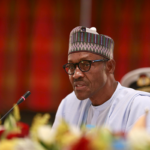Though Africa currently has no confirmed cases of coronavirus, experts have warned that going by the continent’s close ties with China, the first case of the virus may soon be recorded in the continent.
China has been worst hit by the virus with more than 28,000 confirmed cases, out which 565 people have died, however, increasingly close trade links between China and African countries have heightened concerns that the virus could spread.
China is Africa’s biggest trade partner and around 10,000 Chinese firms are currently operating throughout the continent.
According to Chinese state media, more than one million Chinese nationals live in African countries, while more than 80,000 African students, often attracted by government scholarships, are in China.
Last week, the World Health Organization (WHO) declared the coronavirus outbreak a global health emergency, owing to fears that poorer countries might not be able to cope with an outbreak.
This is coupled with the fact that health systems in many African countries are already struggling with the existing workload, which questions their capability to cope with another outbreak of highly infectious disease.
ALSO READ: State of nation: Presidency blasts Northern elders
Though the WHO has advised against travel restrictions, it has identified 13 top priority countries in Africa, which because of their direct links or a high volume of travel to China need to be particularly vigilant.
These are Algeria, Angola, Democratic Republic of Congo, Ethiopia, Ghana, Ivory Coast, Kenya, Mauritius, Nigeria, South Africa, Tanzania, Uganda and Zambia.
According to a BBC News report, a WHO chief from Ethiopia, Tedros Adhanom Ghebreyesus expressed concern for the potential of the virus spreading to countries with weaker health systems.
WHO’s head of emergency operations in Africa, Michael Yao, notes that some countries on the continent have the minimum capability to start a response against disease outbreaks.
“We know how fragile the health system is on the African continent and these systems are already overwhelmed by many ongoing disease outbreaks, so for us, it is critical to detect earlier so that we can prevent the spread.
“The ability of African nations to properly diagnose cases depends on the new reagents being made available from China and Europe,” Yao said.
Until recently, there were only two laboratories in Africa, one in Senegal and the other in South Africa, which had the reagents needed to test samples.
One of the laboratories, Institut Pasteur de Dakar, in Senegal has long been on the front line in medical innovation in Africa, including in yellow fever research.
However, this week Ghana, Madagascar, Nigeria and Sierra Leone have announced they can also conduct tests.
Meanwhile, the WHO has said it will be sending kits to 29 laboratories on the continent to ensure they have the capacity to deal with the virus and also help test samples from other countries if needed.
However, it’s hoped that by later this month at least 36 African countries will be equipped to carry out tests specific to the coronavirus.
Secretary-General, the Nigerian Red Cross Society, Abubakar Ahmed Kende said it had placed one million volunteers on alert as a way to prevent the possible spread of the virus into the country and also contain the spiralling outbreak of Lassa fever across the country.
In Tanzania, Health Minister Ummy Mwalimu announced that isolation centres in the north, east and west of the country had been identified.
Mwalimu added that thermometers had been stockpiled and more than 2,000 health workers have been trained.
Several countries including Kenya, Ethiopia, Ivory Coast, Ghana and Botswana have dealt with suspected cases, placing them in quarantine while tests were carried out.
On its part, Uganda’s health ministry confirmed it had quarantined more than 100 people who arrived at Entebbe International Airport.
The ministry confirmed that some of the people had been quarantined at two hospitals in Entebbe and Kampala, while others have been asked to stay in their homes.
Meanwhile, thousands of African students are stranded in coronavirus province.
Students like Zambian Tisiliyani Salima have been in self-imposed quarantine for more than two weeks.
Every morning she wakes up to the news of scores of more deaths and thousands of new cases of infections in Wuhan.
Despite the draconian measures taken across the city, there is little sign that the spread of the infection is slowing.
The argument that China is better equipped to deal with the outbreak of the coronavirus than African student’s home nations do little to calm the anxieties of many of the African students living in the surrounding province, Hubei.
There are thought to be thousands of Africans living across the province where the virus originated.
Students from Nigeria, Zambia, Tanzania, Cameroon and Ivory Coast are starting to lose hope that their governments will listen to their calls to be evacuated.
Dr John Nkengasong, director of the Africa Centres for Disease Control and Prevention, wrote in the journal Nature that the rapid spread of the coronavirus in Asia as a result of air traffic and vast population movements should be of significance in Africa.
WATCH TOP VIDEOS FROM NIGERIAN TRIBUNE TV
- Let’s Talk About SELF-AWARENESS
- Is Your Confidence Mistaken for Pride? Let’s talk about it
- Is Etiquette About Perfection…Or Just Not Being Rude?
- Top Psychologist Reveal 3 Signs You’re Struggling With Imposter Syndrome
- Do You Pick Up Work-Related Calls at Midnight or Never? Let’s Talk About Boundaries






